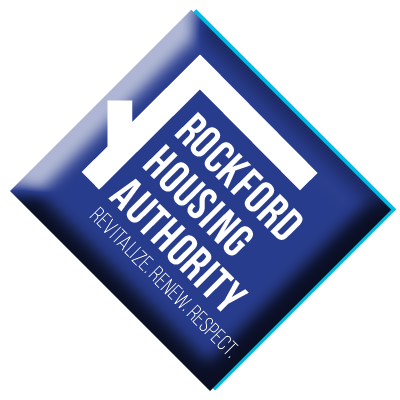- Home
- About Us
- Housing
- Resources
- Contact Us
-
-
-
Address: 223 S. Winnebago Street Rockford, IL 61102
Phone: 815-489-8500
-
-
- Updates
-

Address: 223 S. Winnebago Street Rockford, IL 61102
Phone: 815-489-8500
Address: 223 S. Winnebago Street Rockford, IL 61102
Phone: 815-489-8500


The Rockford Housing Authority in conjunction with our Community Partners, Tessa Skogh, Fair Housing Attorney, Prairie State Legal Services, Michael Hendrick, Director of Outreach Services, Rockford Rescue Mission, and Caitlyn Baylor, Grants & Special Initiatives Director, Habitat for Humanity, invites you to celebrate the 55th Anniversary of the Civil Rights Act being signed into law by learning more about the Fair Housing Act. The Fair Housing Act’s history in Rockford and in Greater Illinois will be discussed, along with practical applications that attendees can learn about. The Fair Housing Act, which was signed into law in 1968, prohibits discrimination in the sale, rental, and financing of housing based on race, color, national origin, religion, sex, familial status, and disability.
The celebration of the 55th Anniversary of the Civil Rights Act is an opportunity for our community members to learn about the history of the Fair Housing Act, its practical applications, and to celebrate the progress that has been made. The event provided by the Rockford Housing Authority and our Host, Laura Snyder, CEO, is an excellent opportunity for community members to come together to learn and to support each other in the awareness and understanding of fair and equitable housing practices. By continuing to raise awareness about fair housing, we can work toward a future where everyone has equal access to safe and affordable housing.
It is important for organizations and individuals to actively work toward creating inclusive and diverse communities. This can be achieved through policies that promote fair housing practices, creating accessible housing options for people with disabilities, and increasing diversity in neighborhoods and communities. The Fair Housing Act has been an important piece of legislation in promoting equal access to housing and reducing discrimination. However, there is still work to be done to ensure that fair housing practices are being followed and that everyone has equal access to safe and affordable housing. This event is a great opportunity to celebrate the progress that has been made in advancing civil rights and to continue the important work of promoting fair housing for all.
Understanding the history of the Fair Housing Act is crucial to recognizing the progress that has been made and the challenges that still exist. While progress has been made in combating these practices, discrimination and inequality still exist in the housing market today. Learning about the practical applications of the Fair Housing Act is also important in order to ensure that individuals are aware of their rights and how to enforce them. For example, attendees may learn about how to file a fair housing complaint, how to recognize discriminatory practices, and how to advocate for fair housing policies in their communities. By working together, we can continue to make progress in promoting equality, fairness, and reducing discrimination in housing.
About The Fair Housing Act: A Vital Tool in Promoting Equal Access to Housing
Access to safe and affordable housing is a fundamental right for all individuals. However, for many years, discrimination in housing practices has prevented many individuals from accessing suitable housing, particularly those who are members of minority communities. In response to widespread discrimination in housing practices, the United States Congress passed the Fair Housing Act in 1968. The Act prohibits discrimination in the sale, rental, and financing of housing based on race, color, national origin, religion, sex, familial status, and disability. Over the years, the Act has played a vital role in promoting equal access to housing for all individuals. In this blog, we will discuss the history of the Fair Housing Act, its practical applications, and its impact on promoting fair and inclusive housing practices.
The History of the Fair Housing Act
The Fair Housing Act was passed in response to the widespread discrimination in housing practices that disproportionately affected minority communities. Before the Act was passed, discriminatory practices like redlining and racial steering were rampant in the housing market. Redlining was a practice in which lenders refused to provide loans or other financial services to individuals living in certain neighborhoods, often those with high percentages of minority residents. Racial steering was a practice in which real estate agents would guide prospective homebuyers toward or away from certain neighborhoods based on their race or ethnicity.
These discriminatory practices had a significant impact on minority communities, making it difficult for individuals to access safe and affordable housing. The Fair Housing Act was passed to address these issues and to promote fair and inclusive housing practices.
The Fair Housing Act prohibits discrimination in the sale, rental, and financing of housing based on seven protected classes: race, color, national origin, religion, sex, familial status, and disability. The Act applies to all housing providers, including landlords, property managers, real estate agents, lenders, and housing-related organizations.
Practical Applications of the Fair Housing Act
Learning about the practical applications of the Fair Housing Act is essential in ensuring that individuals are aware of their rights and how to enforce them. One important aspect of the Act is that it provides a legal framework for individuals to file fair housing complaints if they believe that they have been discriminated against in housing practices.
If an individual believes that they have been discriminated against in housing practices, they can file a complaint with the Department of Housing and Urban Development (HUD) or a state or local fair housing agency. The complaint must be filed within one year of the alleged discriminatory act. The agency will investigate the complaint and determine whether there is evidence of discrimination.
If discrimination is found, the agency will take steps to remedy the situation. Remedies may include compensatory damages, injunctive relief, and attorney’s fees. Additionally, the agency may take steps to ensure that the individual is provided with housing in the future.
Another important practical application of the Fair Housing Act is the promotion of fair housing policies in communities. Community organizations and individuals can work together to promote policies that promote fair housing practices, such as increasing access to affordable housing and creating accessible housing options for individuals with disabilities.
Impact of the Fair Housing Act
The Fair Housing Act has had a significant impact on promoting equal access to housing and reducing discrimination in housing practices. The Act has helped to open up access to housing for historically marginalized groups, including minorities, people with disabilities, and families with children.
Before the Act was passed, many individuals were denied access to safe and affordable housing based on their race, religion, or national origin. The Act has helped to reduce these discriminatory practices and to create more inclusive and diverse communities.
The Fair Housing Act also prohibits discriminatory practices such as denying someone Community members can also advocate for fair housing policies in their local government and support organizations that work towards fair housing practices. Volunteering with organizations that provide housing services or legal aid to those facing housing discrimination can make a positive impact in one’s community.
In conclusion, the Fair Housing Act has had a profound impact on promoting equal access to housing and reducing discrimination. However, it is clear that discrimination and inequality still exist in the housing market, making it crucial to continue educating the public on fair housing practices and the steps that individuals can take to ensure their rights are being protected. Community events and resources like the Prairie State Legal Services can provide valuable information and support to those who have experienced housing discrimination or who want to learn more about fair housing practices.
Please Join Us
This event is a great opportunity to celebrate the progress that has been made in advancing civil rights and to continue the important work of promoting fair housing for all.
Please Join your host Laura Snyder, CEO, and Moderator, Odessa Walker, Director of Human Services, on April 28, 2023, from 11:30 AM to 1:00:PM
at the RHA Central Office, 223 S. WINNEBAGO ST. ROCKFORD.
Community Partner Panelists

To continue to create strategic partnerships with community stakeholders, design a diverse housing portfolio, leverage social service programming to unite and ensure residents are provided with safe and nurturing environments that lead to self-sufficiency, responsibility, and individual empowerment.
Fair Housing Month is a call to action to fight discrimination and promote equal access to housing for all individuals. Together, we can work towards a future where everyone has a place they can call home without fear of prejudice or bias. #EndDiscrimination #FairHousingMonth
Diversity Month is more than just a passing trend; it's a fundamental aspect of our lives. During April, let's reflect on the fact that our unique qualities are what make us strong. Let's continue to participate in advocating for equality, respect, and inclusivity for everyone.
🌟 Exciting News from RHA! 🌟
This week, our very own Angel Mackey, RHA CEO's Executive Assistant, alongside Commissioners Anisha Grimmett and Simone Cameron, represented us at the Nelrod Consortium Annual Conference! 🏢✨
#RHA #CommunityEmpowerment

Within 5 years the RHA will re-establish itself as high performing agency that is a leader in housing and sustainable communities by developing additional, non-HUD revenue streams, increasing our asset base and offering state of the art resident initiatives.